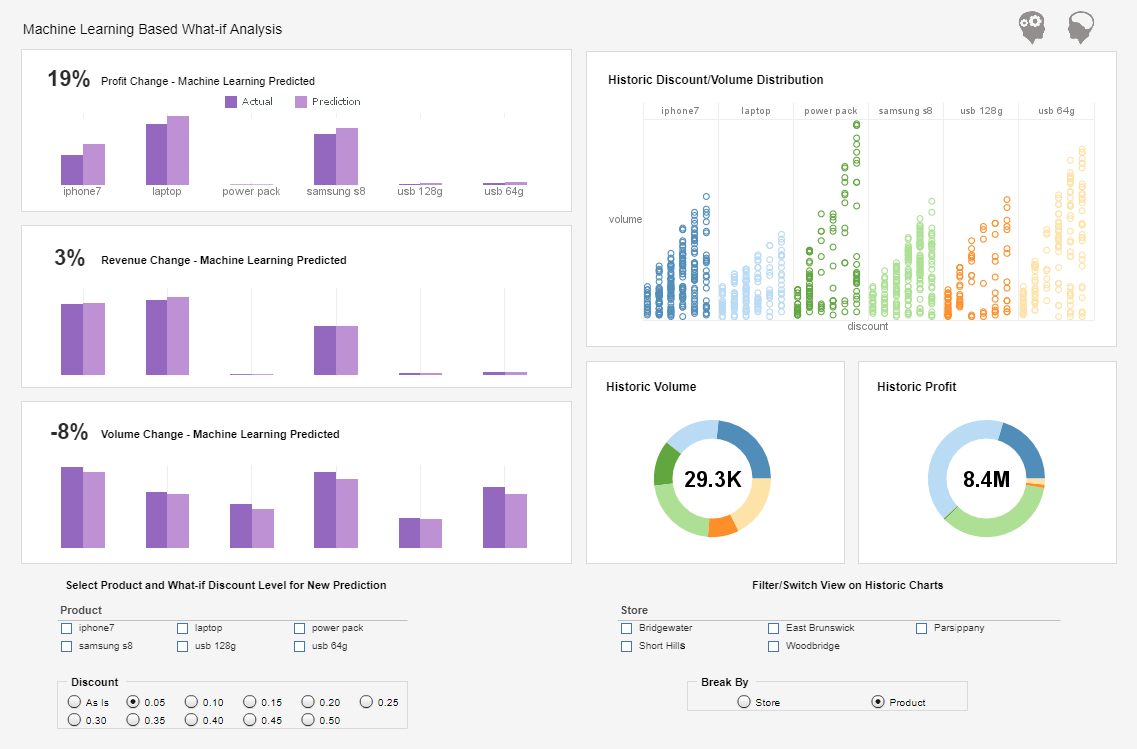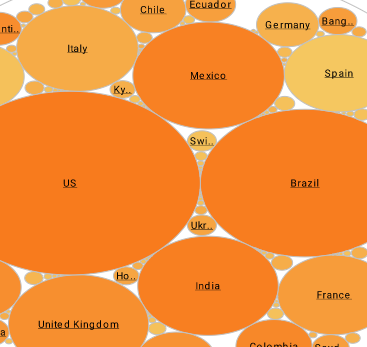The Gap Between Business Intelligence Requirements and Traditional BI Technology Solutions
This is the transcript of a Webinar hosted by InetSoft on the topic of "The Changing Requirements of Business Intelligence." The speaker is Mark Flaherty, CMO at InetSoft.
From what I have seen in the last 25 to 30 years is that now there is this really interesting opportunity in the BI market. Well it depends on how you look at it. If you are a vendor or consultant you see it as an opportunity. If you practitioner of a business intelligence you see this as a gap that you need to fill. The gap exists because the mission criticality of business intelligence just continues to grow year after year. We will spend a couple of minutes talking about why that is.
But on the other hand the overall complexity of business intelligence applications really hasn’t kept up with the criticality of requirements. As a result we have these sets of opposing forces creating this very interesting opportunity or a gap depending how you look at it. Fortunately what we are talking about today is how to close that gap. So it's not all bad news. It's really all about the next generation best practices and the next generation business intelligence technologies that are indeed allowing us today to address this opportunity and to close this gap.
I once read somewhere a comment that the information about a financial transaction has become more important than the transaction itself. This encapsulates what we see in the market today as the main drivers for business intelligence and why is it so mission critical.
| #1 Ranking: Read how InetSoft was rated #1 for user adoption in G2's user survey-based index | Read More |
Increasing Importance of BI
Another factor related to increasing importance of BI is that data volumes are growing by leaps and bounds. Add to that increasing complexity of operations because enterprises are expanding globally or they are expanding into multiple products and multiple service lines. They are merging and acquiring each other.So a simple business operation that could have been analyzed with a simple spreadsheet before, today requires very complex operational analytics to keep track of every that is going on. Obviously regulatory reporting requirements, especially in highly regulated industries aren’t getting any simpler in industries like financial services, pharmaceuticals, oil & gas etc. But last and definitely not least is the factor of competitive differentiation.
You can think of business intelligence as the last frontier of competitive differentiation because everything else in our world either has already become or is soon to become commoditized. In order for us to compete in this highly commoditized economy where profit margins are razor thin, when the differences between products and services are either very small or negligible, it is really the information that we compete on. If you and I sell the same product, but I have a better view into what my customers are doing and how they are behaving and how they are churning and why, or why are they buying my products and services, this gives me a leg up on my competition.
And the last point in the discussion of why BI is so critical is that it is really the one and only glue that ties our entire enterprise application stack together. For the foreseeable future we will definitely continue to use databases and operating systems and desktop applications and enterprise applications and off-the-shelf applications, custom built applications from different software vendors, from different software stacks. I don’t think the Nirvana of having a single software stack is something that we can look forward to in the near future. So BI and business intelligence analytics will, for the foreseeable future, continue to be the glue that does tie it all together.
There is no question that year after year, everyone that we talked to is doing something in BI. Also it is interesting that during the worst times in our economic crisis in 2008 and 2009, not a single person told me that they decreased their BI initiatives or they reduced the budget for their BI initiatives. So that that’s a great proof point .



